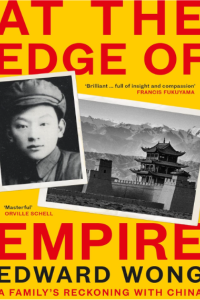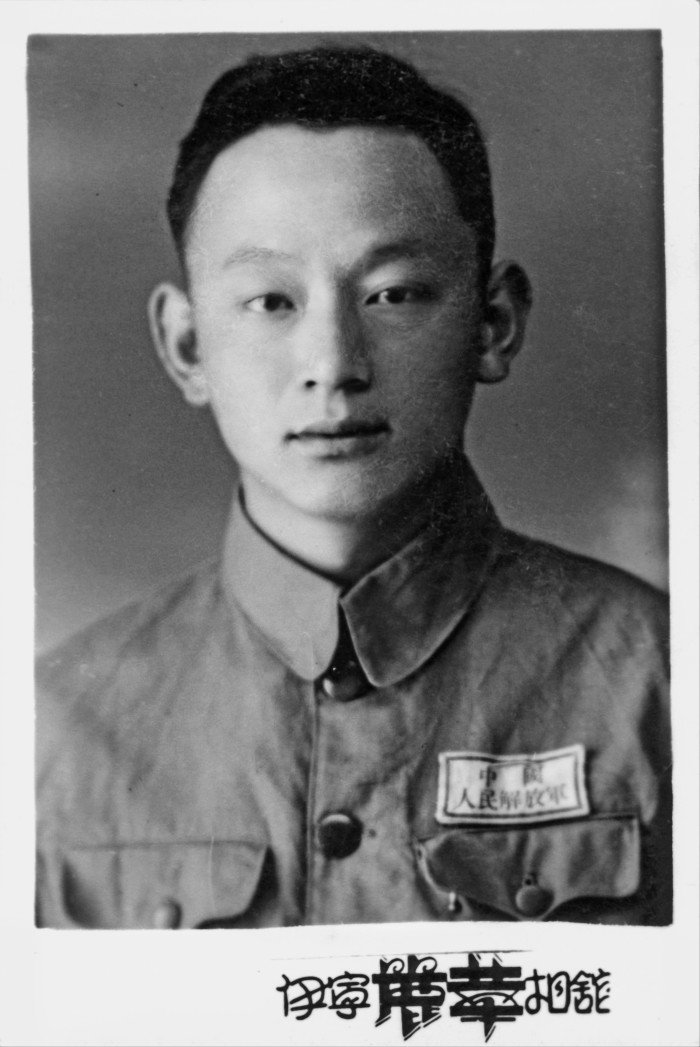
Unlock the Editor’s Digest for free
Roula Khalaf, Editor of the FT, selects her favourite stories in this weekly newsletter.
The exile Chinese memoir, a narrative that characteristically marries frequently unpleasant (if not tragic) personal experience with the overlapping history of China, is a popular device to render intelligible a world that many readers still find unfamiliar. Authors such as Adeline Yen Mah, Charlene Chu or Biao Wang come to mind, among many others. Their stories often involve longer family histories in the form of the experiences of parents and grandparents, stretching the timeframe to offer a broader entry point into China’s long and complex history.
In some ways Edward Wong’s new book, At the Edge of Empire, fits into the genre. He was born in the US, travelling to China as a young adult, and he reported from that country from 2008 to 2016 for the New York Times. He is an award-winning journalist and currently that newspaper’s diplomatic correspondent.
This is a family narrative, but one to which he consciously brings a reporter’s sensibility. Wong tells his parental family story, revisiting important scenes from his father’s life over several decades and playing with the intergenerational narrative complications: what does a parent remember, or choose to forget? What does he pass on to the next generation and what does he withhold? How does a second-generation migrant understand his own connection to China and uncover the secrets of an earlier generation?

Wong does not present At the Edge of Empire as formal history, although he is a professionally well-informed narrator who supplies historical context and illuminating background to the personal encounters. At its heart is the story of his father’s journey from patriotic idealism to disillusionment. It is also an exploration across time of the experience of the peoples who inhabit regions far from the centre of power. The reader is invited to look at China, not from the Han heartland but from the periphery, from places and cultures that experience the impositions of a distant empire but are denied their own agency. It is a very different view.
The starting point is Hong Kong, where Wong’s father was living in 1941 when Japan attacked the then British colony. Aged just nine, he was dispatched for safety, along with his elder brother, to their ancestral village of Hap Wo in Taishan County, Guangdong Province.
As Wong reminds us, Guangdong was always a long way from Beijing, a capital that it viewed as backward. Guangdong is proud of its own powerful culture as a liminal space between China and the outside world — migrants from Taishan had built US railways and mined California gold in the 19th century — and frequently a source of rebellion against China’s northern power bases.

In 1950, despite the concerns of his own parents, Wong’s father, who had just graduated from high school, headed to Beijing where he enrolled in the China Agricultural University. It was the dawn of the People’s Republic and the Chinese Communist party had just launched the Campaign to Suppress Counterrevolutionaries that would result in the execution of between 700,000 and 2mn people and the imprisonment of millions more. It was just the first of what would be repeated waves of repression.
The young student volunteered to join the military, inspired by a wave of patriotic fervour triggered by China’s entry into the Korean war. He was sent initially to Changchun for air force training but was weeded out for political reasons: his elder brother was, by then, in the US. Denied his dream of becoming an air force engineer, he was dispatched to the army.
As Wong follows in his father’s footsteps, he fills in the historical and contemporary background, including Beijing’s place in the historic encounters between settled Han farmers and the nomadic steppe peoples who swept down into China to establish their own dynasties. It was the most recent conquerors, the Manchu, who established the Qing dynasty in the 17th century and extended their empire into Xinjiang, Mongolia and Tibet, territories never before under Beijing’s rule.
It was to these frontiers that Wong’s father was sent, first as a soldier and later as part of the military-led colonisation of Xinjiang that was to flood the new province with Han immigrants. He served the CCP at the edge of empire, but realising that the party would never trust him, his father eventually devised an elaborate — and successful — escape plan.
Wong’s own story runs in parallel: the shifting mood in China under a succession of leaders; the rapid growth that Deng Xiaoping unleashed; the 1989 Tiananmen massacre and the repression of China’s infant legal sector; the savage history of the conquest of Xinjiang and Tibet and the contemporary shift from a formal policy of respect for minority rights to forced assimilation; the recent repression of Hong Kong. Wong tells a large and complicated story without losing sight of the personal, and the arresting detail of lives defined by China’s recent history.
At the Edge of Empire: A Family’s Reckoning with China by Edward Wong Profile £25/Viking $30, 464 pages
Join our online book group on Facebook at FT Books Café and subscribe to our podcast Life and Art wherever you listen